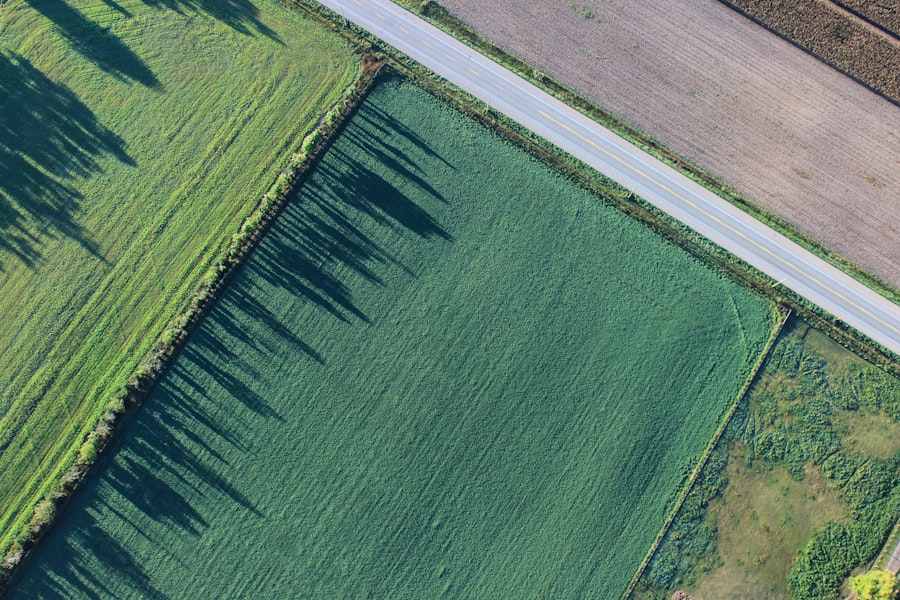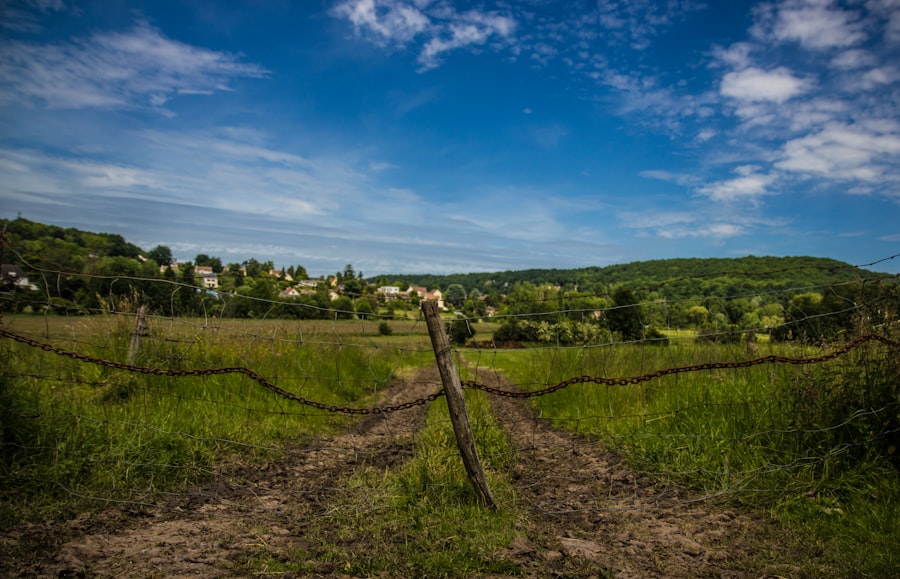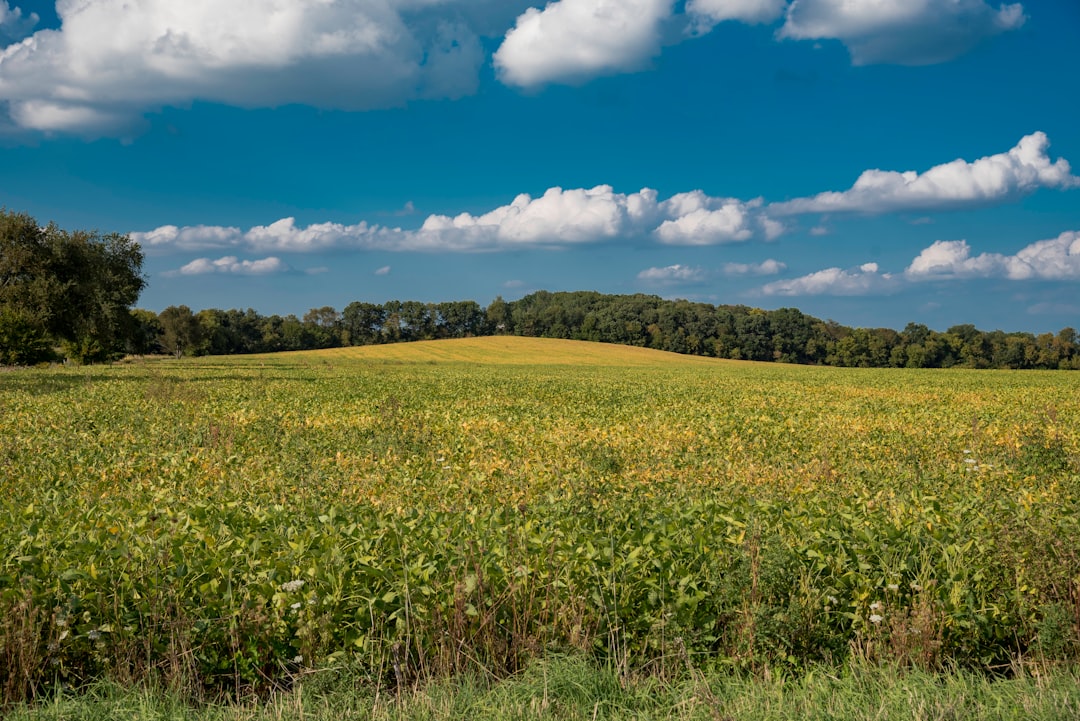Farmland has long been recognized as a vital asset class, often overlooked in the broader investment landscape. As you consider your investment portfolio, it’s essential to understand the unique characteristics that make farmland a compelling option. Unlike traditional stocks and bonds, farmland offers intrinsic value tied to tangible resources.
The land itself, coupled with its ability to produce food and other agricultural products, provides a sense of security that many investors find appealing. In an era where economic volatility is commonplace, farmland stands out as a stable investment that can withstand market fluctuations. Moreover, the global population continues to grow, leading to increased demand for food and agricultural products.
This trend underscores the importance of farmland as an asset class. As you think about the future, consider how the limited supply of arable land combined with rising demand can create a favorable environment for farmland investments. The potential for appreciation in land value, coupled with income generated from agricultural production, positions farmland as a dual-benefit investment that can enhance your overall financial strategy.
Key Takeaways
- Farmland is an important asset class due to its stability and long-term growth potential.
- Investing in farmland offers opportunities for capital appreciation and income generation through leasing or farming operations.
- The benefits of investing in farmland include inflation protection, portfolio diversification, and potential tax advantages.
- Factors to consider when investing in farmland include location, soil quality, water availability, and market demand for agricultural products.
- Farmland can serve as a diversification strategy, helping to mitigate risk and enhance overall portfolio performance.
Farmland Investment Opportunities
When exploring farmland investment opportunities, you’ll find a variety of avenues to consider. Direct ownership of farmland is one option, allowing you to purchase agricultural land outright and manage it yourself or lease it to farmers. This approach can provide you with direct control over your investment and the potential for significant returns through both land appreciation and rental income.
However, it also requires a deep understanding of agricultural practices and market dynamics. Alternatively, you might consider investing in farmland through real estate investment trusts (REITs) or agricultural funds. These vehicles allow you to gain exposure to farmland without the complexities of direct ownership.
By pooling resources with other investors, you can benefit from professional management and diversification across multiple properties. This option can be particularly appealing if you’re looking to invest in farmland but lack the expertise or time to manage it directly.
Benefits of Investing in Farmland

Investing in farmland comes with a host of benefits that can enhance your financial portfolio. One of the most significant advantages is the potential for consistent cash flow. Farmland can generate income through leasing arrangements with farmers who cultivate crops or raise livestock on your land.
This steady income stream can provide you with financial stability and help offset any fluctuations in other areas of your investment portfolio. Additionally, farmland has historically shown resilience against inflation. As prices for goods and services rise, so too does the value of agricultural products.
This characteristic makes farmland an attractive hedge against inflationary pressures, allowing you to preserve your purchasing power over time.
Factors to Consider When Investing in Farmland
| Factors to Consider When Investing in Farmland | |||
|---|---|---|---|
| Location | Soil Quality | Water Availability | Climate |
| Access to Markets | Land Size | Legal Considerations | Infrastructure |
| Land Use Restrictions | Environmental Impact | Income Potential | Risk Management |
Before diving into farmland investments, it’s crucial to consider several key factors that can influence your success. First and foremost, location plays a pivotal role in determining the value and productivity of farmland. Different regions have varying climates, soil types, and access to water resources, all of which can impact agricultural yields.
As you assess potential investments, take the time to research these factors thoroughly to ensure you’re making an informed decision. Another important consideration is the type of crops or livestock that will be produced on the land. Understanding market demand for specific agricultural products can help you identify which investments are likely to yield the best returns.
Additionally, consider the long-term sustainability of farming practices in the area. Investing in regions that prioritize sustainable agriculture can not only enhance your returns but also align with your values as an investor.
Farmland as a Diversification Strategy
Incorporating farmland into your investment strategy can serve as an effective diversification tool. Traditional portfolios often rely heavily on stocks and bonds, which can be susceptible to market volatility. By adding farmland to your mix, you introduce an asset class that behaves differently from conventional investments.
This diversification can help mitigate risk and enhance overall portfolio performance. Furthermore, farmland investments tend to have low correlation with other asset classes, meaning they may not move in tandem with stock market fluctuations. This characteristic can provide a buffer during economic downturns, allowing your portfolio to remain more stable.
As you contemplate your investment strategy, think about how farmland can complement your existing assets and contribute to a more balanced approach.
Risks and Challenges of Farmland Investment

While investing in farmland offers numerous benefits, it’s essential to acknowledge the risks and challenges associated with this asset class. One significant risk is the potential for adverse weather conditions or natural disasters that can impact crop yields and overall productivity. Droughts, floods, and pests can all pose threats to agricultural operations, leading to financial losses for investors.
Additionally, fluctuations in commodity prices can affect the profitability of farming operations. If prices for crops or livestock decline significantly, it may impact rental income or land values. As you consider investing in farmland, it’s crucial to conduct thorough due diligence and stay informed about market trends and potential risks that could affect your investment.
Farmland Investment Trends
As you explore the landscape of farmland investments, it’s important to stay abreast of current trends shaping the industry. One notable trend is the increasing interest in sustainable and organic farming practices. Consumers are becoming more conscious of where their food comes from and how it’s produced, driving demand for sustainably grown products.
This shift presents opportunities for investors who prioritize environmentally friendly practices in their farmland investments. Another trend worth noting is the rise of technology in agriculture. Precision farming techniques, data analytics, and innovative farming equipment are transforming how crops are grown and managed.
As these technologies continue to evolve, they can enhance productivity and efficiency on farms, potentially leading to higher returns for investors. Keeping an eye on these trends can help you make informed decisions about where to allocate your resources in the farmland sector.
Sustainable Farming Practices and Farmland Investment
Sustainable farming practices are becoming increasingly important in today’s agricultural landscape, and they present unique opportunities for investors like you.
Sustainable practices often lead to healthier soils, improved biodiversity, and reduced reliance on chemical inputs—all factors that can enhance productivity over time.
Investing in sustainable farmland can also align with consumer preferences for ethically produced food products. As more consumers seek out organic and sustainably sourced options, farms that adopt these practices may experience increased demand for their products. This trend creates a win-win scenario: you support responsible farming while potentially benefiting from higher returns on your investment.
Tax Benefits of Investing in Farmland
One of the often-overlooked advantages of investing in farmland is the potential tax benefits associated with agricultural properties. Depending on your jurisdiction, there may be various tax incentives available for landowners engaged in farming activities or conservation efforts. For instance, some regions offer property tax reductions for land designated for agricultural use or conservation easements.
Additionally, if you choose to lease your farmland to farmers, rental income may be subject to favorable tax treatment compared to other forms of income. Understanding these tax implications can significantly impact your overall returns on investment and should be a key consideration as you navigate the world of farmland investing.
Farmland Investment Strategies for Beginners
If you’re new to farmland investing, it’s essential to develop a clear strategy that aligns with your financial goals and risk tolerance. One approach is to start small by investing in a fractional ownership model or joining a farmland investment fund. These options allow you to gain exposure to the asset class without committing significant capital upfront.
As you gain experience and confidence in your investments, consider diversifying within the farmland sector by exploring different types of crops or geographic regions. This diversification can help spread risk while maximizing potential returns. Additionally, seek out educational resources or consult with experts in agricultural investments to enhance your understanding of this unique asset class.
The Future of Farmland as an Asset Class
Looking ahead, the future of farmland as an asset class appears promising. With ongoing population growth and increasing demand for food production, the value of agricultural land is likely to continue rising over time. As urbanization encroaches on rural areas, the scarcity of arable land may further drive up prices.
Moreover, as sustainability becomes a central focus in agriculture, investors who prioritize environmentally responsible practices may find themselves well-positioned for success. The integration of technology into farming also holds great potential for enhancing productivity and profitability in the sector. In conclusion, as you contemplate your investment strategy, consider the multifaceted benefits that farmland offers as an asset class.
From consistent cash flow and inflation protection to diversification opportunities and tax advantages, investing in farmland presents a unique opportunity for both financial growth and positive environmental impact. By staying informed about trends and challenges within the industry, you can make strategic decisions that align with your goals while contributing to a sustainable future.
Investing in farmland has gained significant attention as a viable asset class, offering diversification and potential for stable returns. An insightful article that delves into the intricacies of farmland investment is available on How Wealth Grows. This piece explores the benefits and challenges associated with farmland as an asset, providing valuable insights for investors considering this unique opportunity. For a deeper understanding, you can read the full article by visiting How Wealth Grows.
FAQs
What is farmland as an asset class?
Farmland as an asset class refers to the investment in agricultural land for the purpose of generating returns. It is considered an alternative investment that can provide diversification and potential inflation protection.
What are the benefits of investing in farmland as an asset class?
Investing in farmland as an asset class can provide potential for long-term capital appreciation, stable income from crop yields or rental income, and a hedge against inflation. It also offers diversification from traditional asset classes such as stocks and bonds.
What are the risks associated with investing in farmland as an asset class?
Risks associated with investing in farmland as an asset class include exposure to commodity price fluctuations, weather-related risks, regulatory changes, and potential management challenges if the land is operated by the investor.
How can investors access farmland as an asset class?
Investors can access farmland as an asset class through various means, including direct ownership of agricultural land, investing in farmland-focused real estate investment trusts (REITs), or through farmland investment funds and partnerships.
What factors should investors consider before investing in farmland as an asset class?
Before investing in farmland as an asset class, investors should consider factors such as the location and quality of the land, the potential for crop yields, the management and operational aspects of the investment, and the overall market conditions for agricultural commodities.
